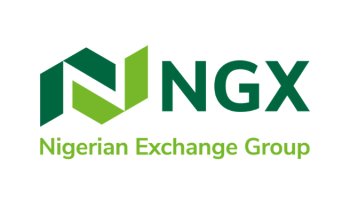Economy
FG Projects 50% Decline in Monthly Revenue Allocations

By Tony Obiechina, Abuja
Following significant drops in the global crude oil prices, the Federal Government on Monday projected that monthly revenue allocations to the three tiers of government may decline to below N400 billion, in the next three to six months.
This is against the N888.
Minister Finance, Budget and National Planning, Mrs Zainab Ahmed made the projections at a press conference while announcing government stimulus to ameliorate the COVID 19 pandemic.
She said based on the fiscal assumptions underpinning the 2020 Appropriation Act, monthly federation account (FAAC) disbursements to the federal and state governments were projected at N888.
The Minister however, explained that “due to the significant drop in international oil prices, FAAC monthly disbursements have declined in recent months to N716.3 billion in January and N647.4 billion in February and N581billion in March 2020”.
The Minister said, “Our experience shows that monthly FAAC receipts must average at least N650 billion for the federal and state governments to meet their current obligations. Unfortunately, we project that monthly receipts may decline to below N400 billion, over the next three to six months.”
According to her, “In order to address the emerging fiscal risks, Mr. President has given a number of approvals. He has approved that the sum of US$150 million be withdrawn from the Nigeria Sovereign Investment Authority (NSIA) Stabilisation Fund to support the June 2020 FAAC disbursement. The Stabilisation Fund was created for such emergencies and is to be utilised for this purpose.
“Mr. President has also approved that the Federal Ministry of Finance, Budget and National Planning should engage with the Central Bank of Nigeria (CBN) to agree on a debt and interest moratorium for states on federal government and CBN-funded loans, in order to create fiscal space for the states, given the projected shortfalls in FAAC allocations.
“Accordingly, once monthly average FAAC receipts fall below a specific threshold, interest and capital payments by states shall be suspended till monthly average FAAC receipts exceed the threshold. The details of this moratorium will be expeditiously worked out with a view to submitting the final proposals for Mr. President’s guidance and final approvals,” Ahmed stated.
In her words: “The intervention is vital to create fiscal space for the States, as they deal with the health and economic impact of the crisis. States will also be encouraged to explore similar arrangements on their outstanding debts to commercial banks”.
On ensuring adequate supplies of essential food items and critical medical supplies, as well as appropriate stewardship of donated items and funds, the Minister noted that the responses to the COVID-19 Pandemic and the impact of the 14-days’ lockdown would have a significant impact on the transportation, distribution and availability of essential food items and medical supplies.
According to her, the government recognises the adverse implications of these extraordinary measures for our market women, farmers, traders and smaller businesses.
Referring to the Finance Act, 2019, Ahmed said “The Finance Act, 2019 fortuitously provided significant tax relief for micro, small and medium-sized enterprises (MSMEs). Corporate tax rates for medium-sized enterprise were cut from 30 percent to 20 percent, and SMEs are completely exempt from corporate taxation.
“This tax relief will be invaluable for businesses in the large informal sector that earn N25 million or less in a financial year.
The Finance Act, 2019 has also expanded the value added tax (VAT) exemption list for essential food, medical supplies and other basic items that are critical in our efforts to address the COVID-19 pandemic.”
Acknowledging the contributions of public-spirited Nigerians towards the fight against the pandemic, the Minister said: “We deeply appreciate the overwhelming show of solidarity by public-spirited individuals and corporate bodies towards combating the COVID-19 pandemic through financial and material contributions.
” In this regard, the government recognises its responsibility to put an adequate framework in place for the collection, management and reporting of these donations. Accordingly, the Federal Ministry of Finance, Budget and National Planning has developed a comprehensive framework for the transparent management of the contributions.”
She said in the interim, “Mr. President has also approved the opening of five commercial bank accounts as transit accounts to the treasury single account (TSA)”.
This, according to her, is in order to better mobilise donations from the generality of the people and corporate bodies across the nation, create flexibility and make it easy for citizens that want to donate while maintaining the sanctity of the TSA.
She said, “Going forward, the COVID-19 donor accounts, which will form part of the existing TSA arrangement, have been opened with the following banks: Zenith bank, Access bank, Guaranty Trust bank, UBA; and First bank. “Other banks will be included in this initiative as the need arises. These accounts will be linked to the main TSA for ease of monitoring and reporting.
“Finally, we will be issuing circulars and Ministerial Orders to ensure that charitable donations by benevolent companies to support our COVID-19 pandemic efforts are tax deductible, in line with Section 25 of the Companies Income Tax Act”.
Also considering the place of the amendment of 2020 Appropriation Act, Ahmed said: “The 2020 Appropriation Act was based on certain fiscal assumptions, which we have been compelled to revisit, given the emerging economic realities.
“Specifically, projected oil revenues have been significantly affected in that: Dated Brent oil prices fell to as low as US$19.125/barrel (03.04.2020) as compared with the 2020 budget benchmark of US$57/barrel; and oil production in 2020 year-to-date is 1.9mbpd (before the current crises) as compared with the 2020 budget’s projection of 2.18mbpd.”
“We are therefore revising the benchmark oil price for 2020 to US$30/barrel and oil production to 1.7mbpd. We have similarly had to adjust downwards our non-oil revenue projections, including various tax and customs receipts, as well as proceeds of privatisation exercises.
“In this regard, the Budget Office is currently working on amendments to the medium-term expenditure framework (MTEP 2020-2022) and the 2020 Appropriation Act. The proposed amended budget will provide for the COVID-19 Crisis Intervention Fund and other adjustments required, due to the decline in international oil prices.
“We have also commenced consultations with the leadership and key Committees of the National Assembly to discuss our plans, such that once the Executive’s 2020 Amendment Budget is completed, we shall expeditiously seek presidential and legislative approvals for this revised appropriation”, she added.
Economy
Eid-el-Kabir: Ram Sellers Decry Low Patronage as Prices Soar in Ile-Ife

The Chairman, Ram Sellers’ Association, Odo-Ogbe Market, Ile-Ife, Osun, Alhaji Akeem Salahudeen, has complained of low patronage, attributing it to high cost of rams and the economy situation in the country.
Salahudeen stated this in an interview on Wednesday in Ile-Ife.
He said that the big sized ram which was sold between N550,000 and N620,000 last year are now being sold at the rate of N800,000 to N1.
2 million.He added that the medium sized ram which was sold between N300,000 and N350,000 last year is now going for between N450,000 and N550,000.
According to him, small sized ram sold for N200,000 and N230,000 last year now attracts N300,000 and N450,000 this year.
He attributed the increase in the prices of rams in this year’s Sallah to the insecurity in the North, which he claimed had disrupted the supply chain.
“They said the worsening insecurity in the North has forced some sellers to import rams from neighbouring countries like Niger, Mali and Chad, which they said contributed to the high prices,” he emphasised.
At Sabo Cattle Market in Ile-Ife, Alhaji Saheed Yaro, said that the price of rams has surged as the small sized ram which was sold at N150,000 and N180,000 last year, is now being sold between N250,000 and N350,000.
Yaro added that the price of medium sized ram which was between N185,000 and N260,000 last year now goes for between N350,000 to N450,000.
Accordingly, the big sized ram sold between N480,000 and N500,000 last year is now between N550,000 and N780,000.
At Boosa Cattle Market located at Modakeke, Mr Musa Salami stated that prices of rams have witnessed sharp increase with a medium sized ram which was for N170,000 to N200,000 last year is now at N250,000 to N300,000.
Salami stated further that the big sized ram that was sold at N350,000 and N400,000 is now being sold at N600,000 to N750,000.
He added that he brought 150 rams a week ago, but has been able to sell only 15, explaining that many customers turned back on hearing prices without buying.
He noted that customers who usually bought rams from him over the years are now complaining about costs.
NAN reports that ram sellers expressed concern over low patronage in many markets, saying that customers were lamenting the high cost of the animals.
A civil servant, Mr Bayo Olabisi, said that most workers in the state cannot afford to buy rams for this year’s Eid-el-Kabir due to the high prices and the economic hardship.
Olabisi added that the present economic hardship has been taken a toll on the workers, especially with the high transportation and other costs following the removal of fuel subsidy by the government.
“In fact, I visited three places where they sell rams, but I couldn’t buy any because I can’t afford to buy.
“When I priced a medium sized ram, the seller told me N250,000, the same size of ram I bought for N150,000 last year.
“I would rather use part of my salary to buy half bag of rice and two chickens for my family.
“For Allah has said that if you can’t afford ram, you should not borrow or buy on credit because there’s no reward on that,“ he said. (NAN)
Economy
We’ll Continue Borrowing Within Sustainable Limits- FG

The Federal Government says it will continue to borrow within manageable and sustainable limits in accordance with the Debt Management Office (DMO) debt sustainability framework.
This is contained in a statement by the Director, Information and Public Relations in the Ministry of Finance, Mr Mohammed Manga, in Abuja on Wednesday.
President Bola Tinubu recently requested the approval of the 2024 – 2026 external borrowing rolling plan from the National Assembly.
Tinubu has requested the National Assembly’s approval to secure external loans of 21.5 million dollars and 15 billion Yuan, along with a grant of 65 million Euro, as part of the federal government’s proposed 2025–2026 external borrowing plan.
Manga said that the proposed borrowing plan was an essential component of the Medium-Term Expenditure Framework (MTEF) in accordance with both the Fiscal Responsibility Act 2007 and the DMO Act 2003.
“The plan outlines the external borrowing framework for both the federal and sub-national governments over a three-year period, accompanied by five detailed appendices on the projects, terms and conditions, implementation period, etc.
“By adopting a structured, forward-looking approach, the plan facilitates comprehensive financial planning and avoids the inefficiencies of ad-hoc or reactive borrowing practices.
“This strategic method enhances the country’s ability to implement effective fiscal policies and mobilise development resources,” he said.
According to the statement, the borrowing plan does not equate to actual borrowing for the period.
“The actual borrowing for each year is contained in the annual budget. In 2025, the external borrowing component is 1.23 billion dollars, and it has not yet been drawn.
“This is planned for H2 2025, the plan is for both federal and several state governments across numerous geopolitical zones including Abia, Bauchi, Borno, Gombe, Kaduna, Lagos, Niger, Oyo, Sokoto, and Yobe States.
“Importantly, it should be noted that the borrowing rolling plan does not equate to an automatic increase in the nation’s debt burden.
“The nature of the rolling plan means that borrowings are split over the period of the projects, for example, a large proportion of projects in the 2024–2026 rolling plan have multi-year drawdowns of between five to seven years which are project-tied loans,” Manga said.
He said that these projects cut across critical sectors of the economy, including power grids and transmission lines, irrigation for improving food security, fibre optics network across the country, fighter jets for security, rail and road infrastructure.
According to him, the majority of the proposed borrowing will be sourced from the country’s development partners, like the World Bank, African Development Bank, French Development Agency, European Investment Bank, JICA, China EximBank, and the Islamic Development Bank.
Manga said that these institutions offer concessional financing with favourable terms and long repayment periods, thereby supporting Nigeria’s development objectives sustainably.
He said that the government seeks to reiterate that the debt service to revenue ratio has started decreasing from its peak of over 90 per cent in 2023.
Manga said that the government has ended the distortionary and inflationary ways and means.
According to him, there is significant revenue expectations from the Nigerian National Petroleum Corporation Limited (NNPC Ltd), technology-enabled monitoring and collection of surpluses from government owned enterprises and revenue-generating ministries, departments, and agencies and legacy outstanding dues.
“Having achieved a fair degree of macroeconomic stabilisation, the overarching goal of the federal government is to pivot the economy onto a path of rapid, sustained, and inclusive economic growth.
“Achieving this vision requires substantial investment in critical sectors such as transportation, energy, infrastructure, and agriculture.
“These investments will lay the groundwork for long-term economic diversification and encourage private sector participation.
“Our debt strategy is therefore guided not solely by the size of our obligations, but by the utility, sustainability, and economic returns of the borrowing,” he said.(NAN)
The Federal Government says it will continue to borrow within manageable and sustainable limits in accordance with the Debt Management Office (DMO) debt sustainability framework.
This is contained in a statement by the Director, Information and Public Relations in the Ministry of Finance, Mr Mohammed Manga, in Abuja on Wednesday.
President Bola Tinubu recently requested the approval of the 2024 – 2026 external borrowing rolling plan from the National Assembly.
Tinubu has requested the National Assembly’s approval to secure external loans of 21.5 million dollars and 15 billion Yuan, along with a grant of 65 million Euro, as part of the federal government’s proposed 2025–2026 external borrowing plan.
Manga said that the proposed borrowing plan was an essential component of the Medium-Term Expenditure Framework (MTEF) in accordance with both the Fiscal Responsibility Act 2007 and the DMO Act 2003.
“The plan outlines the external borrowing framework for both the federal and sub-national governments over a three-year period, accompanied by five detailed appendices on the projects, terms and conditions, implementation period, etc.
“By adopting a structured, forward-looking approach, the plan facilitates comprehensive financial planning and avoids the inefficiencies of ad-hoc or reactive borrowing practices.
“This strategic method enhances the country’s ability to implement effective fiscal policies and mobilise development resources,” he said.
According to the statement, the borrowing plan does not equate to actual borrowing for the period.
“The actual borrowing for each year is contained in the annual budget. In 2025, the external borrowing component is 1.23 billion dollars, and it has not yet been drawn.
“This is planned for H2 2025, the plan is for both federal and several state governments across numerous geopolitical zones including Abia, Bauchi, Borno, Gombe, Kaduna, Lagos, Niger, Oyo, Sokoto, and Yobe States.
“Importantly, it should be noted that the borrowing rolling plan does not equate to an automatic increase in the nation’s debt burden.
“The nature of the rolling plan means that borrowings are split over the period of the projects, for example, a large proportion of projects in the 2024–2026 rolling plan have multi-year drawdowns of between five to seven years which are project-tied loans,” Manga said.
He said that these projects cut across critical sectors of the economy, including power grids and transmission lines, irrigation for improving food security, fibre optics network across the country, fighter jets for security, rail and road infrastructure.
According to him, the majority of the proposed borrowing will be sourced from the country’s development partners, like the World Bank, African Development Bank, French Development Agency, European Investment Bank, JICA, China EximBank, and the Islamic Development Bank.
Manga said that these institutions offer concessional financing with favourable terms and long repayment periods, thereby supporting Nigeria’s development objectives sustainably.
He said that the government seeks to reiterate that the debt service to revenue ratio has started decreasing from its peak of over 90 per cent in 2023.
Manga said that the government has ended the distortionary and inflationary ways and means.
According to him, there is significant revenue expectations from the Nigerian National Petroleum Corporation Limited (NNPC Ltd), technology-enabled monitoring and collection of surpluses from government owned enterprises and revenue-generating ministries, departments, and agencies and legacy outstanding dues.
“Having achieved a fair degree of macroeconomic stabilisation, the overarching goal of the federal government is to pivot the economy onto a path of rapid, sustained, and inclusive economic growth.
“Achieving this vision requires substantial investment in critical sectors such as transportation, energy, infrastructure, and agriculture.
“These investments will lay the groundwork for long-term economic diversification and encourage private sector participation.
“Our debt strategy is therefore guided not solely by the size of our obligations, but by the utility, sustainability, and economic returns of the borrowing,” he said.(NAN)
Economy
Organise Informal Sector, Tax Prosperity Not Poverty, Adedeji Tasks Officials

The Chairman, Joint Tax Board (JTB), Dr Zacch Adedeji, has urged officials of the board to organise traders and artisans into a formal body before capturing them in the tax net.
Adedeji said that this was in line with the agenda of President Bola Tinubu not to tax poverty but prosperity.
The chairman stated this at the 157th Joint Tax Board meeting held in Ibadan, on Monday.
The theme of the meeting “Taxation of the Informal Sector: Potentials and Challenges”.
Speaking on the theme of the event, Adedeji stressed the need to evolve a system that would make the informal sector formal before it could be taxed.
Adedeji, who also doubles as the Chairman, Federal Inland Revenue Service, (FIRS), said “What I would not expect from the JTB meeting is to define a system that would tax the informal sector.
“The only thing is to formalize the informal sector, not to design a system on how to collect tax from market men and women.
“As revenue administrator, our goal is to organise the informal sector so that it can fit into existing tax law.”
Citing a report of the National Bureau of Statistics (NBS) in the first quarter of 2023, the chairman said that the nation’s unemployment index was attributable to recognised informal work.
Adedeji stated that workers in that sector accounted for 92.6 per cent of the employed population in the country as at Q1 2023.
“JTB IS transiting to the Joint Revenue Board with expanded scope and functions.
“We are hopeful that by the time we hold the next meeting of the Board, the Joint Revenue Board (Establishment) Bill would have been signed into Law by the President.
“The meetings of the board provide the platform for members to engage and brainstorm on contemporary and emerging issues on tax, and taxation,” he said.
In his address, Gov. Seyi Makinde of Oyo State, said the theme of the meeting was apt and timely, stressing that it coincides with the agenda of the state to improve on its internally generated revenue.
According to him, the meeting should find the best way forward in addressing the issue of the informal sector and balance the identified challenges.
“Nigeria is rich in natural resources, but it is a poor country because economic prosperity does not base on natural resources,”
Makinde also said that knowledge, skill and intensive production were required for economic prosperity, not just the availability of natural resources.
He stressed the need to move from expecting Federal Allocations to generating income internally.
“We are actively ensuring that people are productive and moving the revenue base forward,” Makinde said.
The governor said that tax drive should be done by simplifying tax processes, incentives for compliance like access to empowerment schemes and loans.
He urged JTB to deepen partnership and innovation in using data on tax to track and administer it.
Earlier, the Executive Chairman, Oyo State Board of Internal Revenue, Mr Olufemi Awakan, said the meeting was to address tax-related matters, evolve a workable, effective and
efficient tax system across the states and at the Federal level.
He urged participants to find amicable solutions to challenges of tax jurisdiction, among others.
Tax administrators from all the 36 states of the federation, who are members of JTB, were in attendance. (NAN)






















